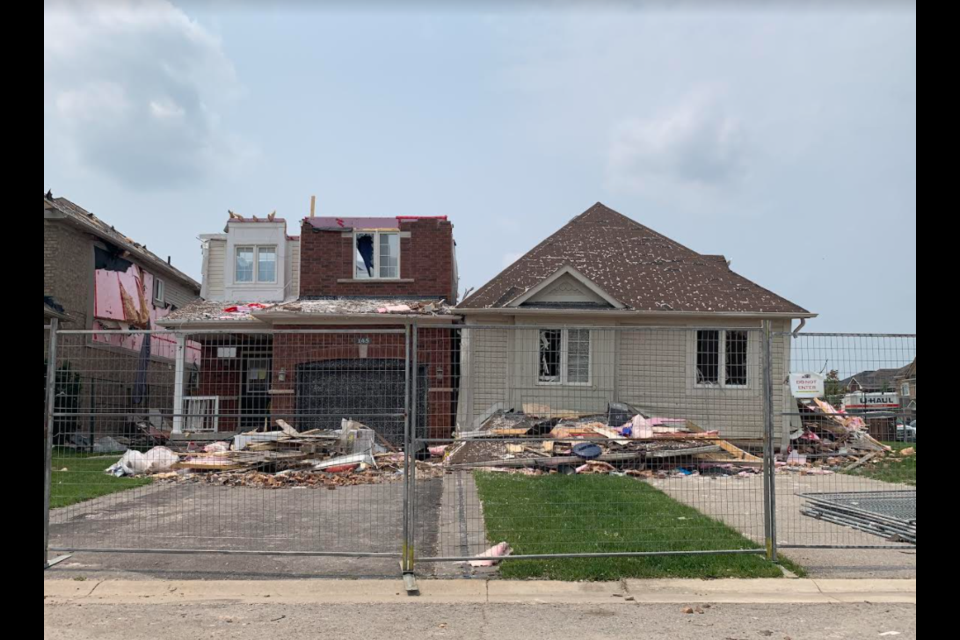Barrie councillors will soon get the lowdown on high winds and the risks they present.
Council has invited the Institute for Catastrophic Loss Reduction (ICLR) to provide a presentation concerning extreme wind risk reduction measures for new buildings in the wake of the July 15 tornado, which damaged so many homes in southeast Barrie.
“When I was advocating for a hurricane-strap rebate program, some of the councillors had questions about what hurricane straps can do,” Coun. Natalie Harris said. “Seeing is so important with respect to this science, so a presentation from the ICLR will hopefully encourage the councillors who were doubting the value of the cost of the rebate program, to reconsider.”
The ICLR is a centre for multi-disciplinary disaster prevention research and communication.
Hurricane strapping, or clips, connect and strengthen wood-framed roofs and houses, with the most common ones made of galvanized steel or stainless steel. They are designed to help protect structures from severe weather, but the Ontario Building Code (OBC) does not require them.
Harris has said the ICLR has proven that the addition of hurricane straps to homes can significantly decrease the damage caused by tornadoes of an EF 0-2 rating, which are the most commonly seen tornadoes in Ontario.
Last month, council approved a motion that the city continue to waive fixed water/sewer billing charges in the city’s tornado zone until the water is being used, and waive late charges on unpaid 2021 final property tax amounts until Jan. 1, 2022.
But a city rebate for hurricane straps, totalling an estimated $300,000 annually, is not included in the motion.
Instead, as part of the staff memo regarding updates to the OBC, staff will provide options to require hurricane straps for new buildings in Barrie.
“While the province controls the OBC, I feel it’s important for the City of Barrie to really step up to the plate and do everything we can to protect our residents if (or) when another tornado hits,” Harris said. “Dufferin County is leading the way with respect to stepping up as a municipality to protect its residents, proving that municipalities don’t have to wait for the OBC to be changed to make dramatic improvements to home, property (and) human safety.”
Dufferin County is offering a rebate incentive to property owners or builders which install hurricane clips during construction on all new buildings, additions or renovations.
The Ward 6 councillor said she’s also spoken to Barrie’s two MPPs, Andrea Khanjin and Doug Downey, and they will be discussing the recommendations to improve the OBC again next month.
The July 15 EF-2 tornado, which touched down in southeast Barrie with maximum wind speeds reaching 210 kilometres per hour, damaged hundreds of homes and some small businesses in the Mapleview Drive East/Prince William Way area. It compromised the structural integrity of buildings, as some of them lost their roofs.
Bala Araniyasundaran, the city’s general manager of infrastructure and growth management, has said city staff in the building department are working on a comprehensive set of modifications to the OBC that would improve the resiliency of buildings to help them withstand a tornado.
He said these modifications will include the hurricane straps, and the city will approach provincial code and nation code agencies to get the straps or clips incorporated within the OBC. Araniyasundaran said councillors should have a memo on this in early 2022.
Municipalities don’t have the authority to change the OBC, which defines minimum construction standards for this province. The OBC is created and must be amended by the province, but local councils can ask for changes.



